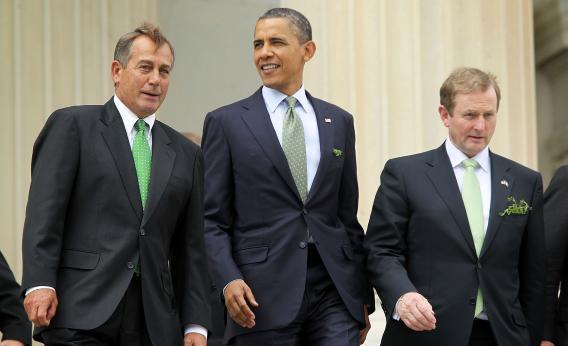The so-called “fiscal cliff,” a combination of the spending cuts agreed to as part of the debt-ceiling deal, the expiration of the Bush tax cuts, and the expiration of a set of corporate tax breaks for various kinds of investments, is a somewhat curious Washington phenomenon. Basically nobody in Congress wants all that stuff to happen, and on substantial subelements of it, there’s bipartisan agreement on the specifics. But absolutely everything—including the parts people don’t disagree about—is being held hostage to the lack of larger agreements. Democrats, for example, favor extending most of the Bush tax cuts, but Republicans won’t agree to do it as a way of trying to get leverage to induce Democrats to support extension of the high-end rate reductions.
Almost everyone thinks that at least some of this will be settled by the end of the calendar year (if nothing else, we’ll know who’s won the presidential election by then), but this anti-stimulus is already impacting the economy as “a rising number of manufacturers are canceling new investments and putting off new hires because they fear paralysis in Washington will force hundreds of billions in tax increases and budget cuts in January.”
It seems unlikely to me that the Federal Reserve could fully offset this impact in the short term. But they could surely offset some of it. The sign you’d want to see would be statements of fierce determination like “while we’ll likely be unable to fully offset the impact of large-scale fiscal contraction, the Federal Reserve will be trying its hardest to prevent a decline in aggregate economy-wide spending.” But we’re not hearing anything like that. Rooseveltian resolve has been in short supply. So the job market remains weak, fiscal policy is going to be unstimulative and chaotic, and monetary policy is MIA.
